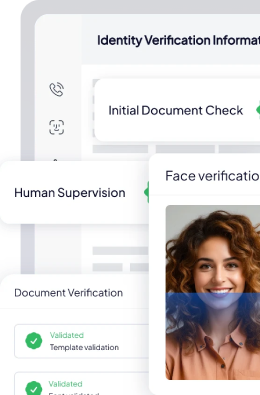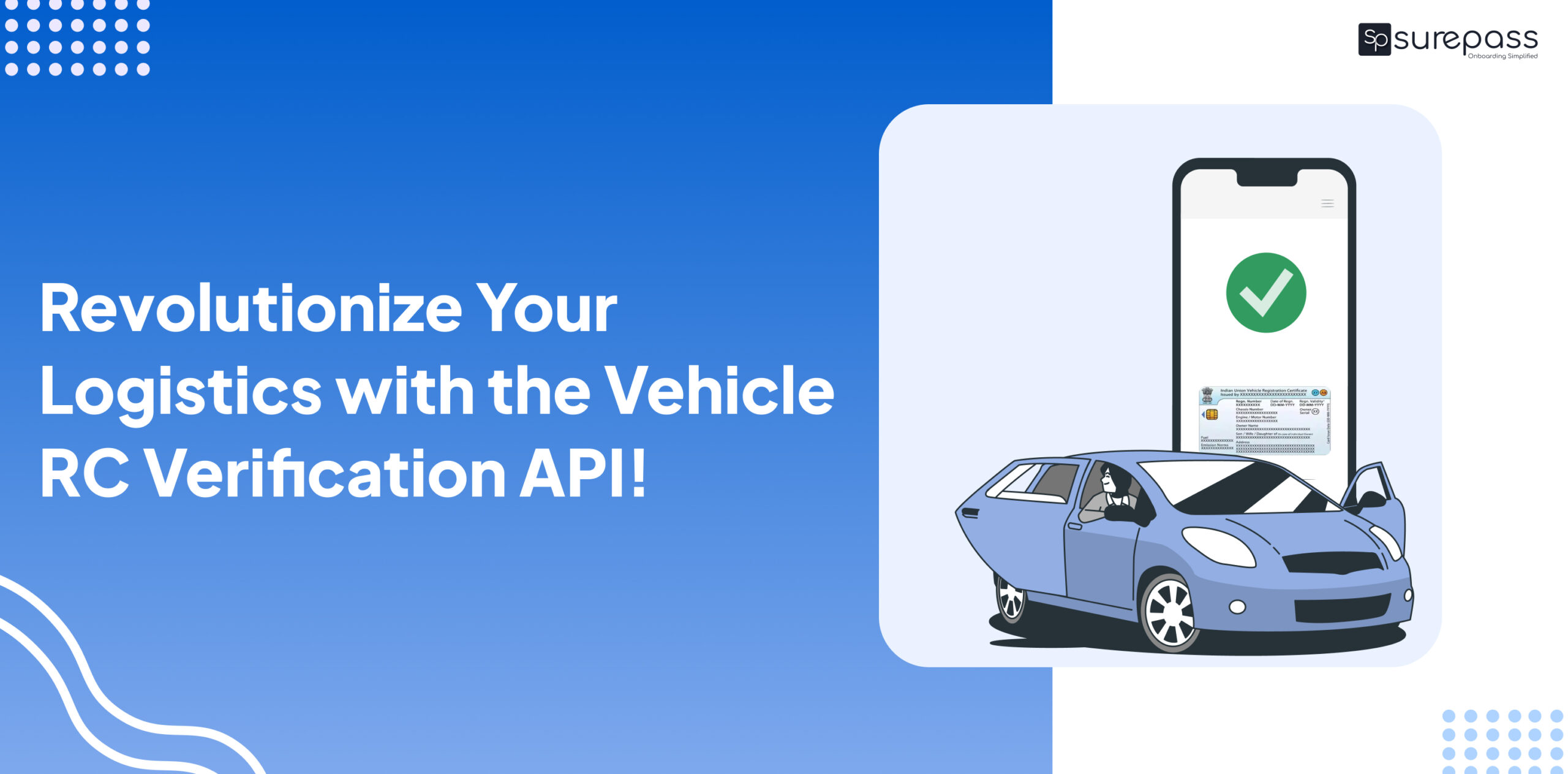Are you a logistics manager seeking a productive method for controlling your fleet of vehicles? You could just require the vehicle registration check API. This effective tool may assist in automating the process of verifying car registrations, saving you time and lowering the possibility of mistakes. We’ll go into the automobile registration check API’s definition, functionality, and advantages in this blog article. So strap on and let’s investigate this revolutionary technology!
RC Verification
Logistics professionals may verify the registration status of their cars using the Vehicle Registration Verify API. To give precise details regarding a vehicle’s registration status, it leverages real-time data from a number of sources, including government databases and insurance firms.
By automating the process of validating vehicle registrations, this technology has fundamentally changed how logistics firms manage their fleets. You may simply incorporate this tool into your system and let it work its magic rather than manually checking each vehicle’s registration status.
Vehicle RC Verification
Utilizing the rc check API has the major benefit of lowering the possibility of mistakes. Manual data entry frequently results in errors that might have major compliance or safety ramifications. By using this programme, you can guarantee accurate car registration across the board and do away with human mistakes. Vehicle RC Check API can be a productive solution to manage your fleet while decreasing workload and dangers.
Vehicle Registration Check API – Its working Process
The Vehicle RC Verification API provides customers with up-to-date information on any registered automobiles in the system by gaining access to a database of vehicle registration data. In order to do business, this enables logistics companies to immediately confirm the validity of a certain vehicle.
To utilize the API, you only need to submit its license plate number or engine & chassis number. The API will then scan its database for any matching entries and deliver all pertinent information.
Important information including the brand and model, year of production, status (such as whether it is currently registered), and ownership history are all part of the data made available by the Vehicle Registration Check API. This can assist logistics companies in preventing possible fraudsters from using fictitious credentials to access their services.
Some APIs additionally provide other features like owner history and insurance. By utilizing this abundance of information, logistics businesses can decide more intelligently which trucks to use and guarantee that they are always functioning securely and effectively.
The RC Registration Check API is a vital resource for logistics professionals aiming to optimize their processes while minimizing risks.
Our APIs are Aadhaar Verification API, Chassis Number to RC API, Vehicle RC with financier details and more. So visit our official website https://surepass.io/ and book a free demo now.
Automate your KYC Process & reduce Fraud!
We have helped 1000+ companies in reducing their user onboarding TAT by 95%
How Surepass API can help to check the RC status of the vehicle?
The Vehicle RC check API from Surepass is a potent tool that may assist logistics operators in several ways to enhance their operations. It helps to perform an online RC check and check vehicle RC status online. Operators of logistics services can:
- Checking the state of a vehicle’s registration – A vehicle’s registration status may also be checked using the Vehicle RC API. This is helpful for logistics managers who have to make sure the cars they utilize are insured and legally registered. By providing the car’s registration number, the API may be used to swiftly and conveniently verify the registration status of a vehicle.
- Obtaining details regarding the history of vehicles: You may obtain details about the past of automobiles using the Vehicle RC API. Operators in the logistics industry who must choose their cars wisely may find this information to be helpful. The following information may be obtained via the API are Model, The year that the car was made, Lien status of the car, History of the ownership of the vehicle, Fraud prevention
- Preventing theft and fraud
Fraud and theft may also be avoided by using the Vehicle RC API. The API may be used to obtain information on a vehicle’s past, check its registration status, and confirm who owns it. Theft of vehicles can be avoided by using this information to spot fraudulent transactions.
- Enhancing client interactions
Overall, Surepass’s Vehicle RC API is a strong tool that may assist logistics operators in many ways to enhance their operations. Logistics professionals may use the API to confirm a vehicle’s ownership, check its registration status, learn about its past, stop fraud and theft, and enhance customer service.
Vehicle RC verification
Vehicle RC verification is the process of checking the legitimacy and details of a vehicle’s registration certificate (RC) that is often required. There may be regional variations in how to check a vehicle’s RC, but you may generally follow these steps:
Process to check RC registration
Below are a few steps to check the RC registration of your vehicle:
- Verify the RC card physically: Check the owner’s provided physical RC card or paperwork. Make sure that it seems authentic, contains the right security components (such as watermarks, holograms, and security threads), and has not been altered.
- Verify the Details: Compare the information on the RC with the actual attributes of the car. Make sure that the make, model, engine number, chassis number, registration number, and owner’s name correspond to the data on the RC.
- Online Validation of the RC: You may verify car registration information via online portals or applications that are offered by the government or the relevant transport agency in many different nations. To access this data, you might need to provide the chassis number or registration number of the car.
- Contact Officials: You can get in touch with the local transport or car registration authorities if you are unable to validate the RC online or have questions regarding its veracity. They can assist you in confirming the accuracy and validity of the RC.
- Request Documents: Insist on receiving supporting paperwork from the owner, such as a copy of the RC, proof of insurance, and a pollution under control (PUC) certificate. Compare the information in these documents with that on the RC.
- Examine the hologram or seal: Some RCs have difficult-to-replicate holograms or seals. Make sure they are authentic by carefully inspecting them.
- Exercise Caution: If you have any doubts regarding the RC’s veracity, you can consider engaging police enforcement or legal professionals.
How can Surepass help you?
It is crucial to confirm that the vehicle’s RC is authentic since using or accepting a counterfeit or forged RC may result in legal problems. Remember that your region and local laws may affect the precise procedure and instruments available for validating a vehicle’s RC.
Always adhere to the protocols and instructions given by the pertinent authorities in your region. Our RTO API is made to make it easier to get important details about a car’s registration and ownership. It is especially helpful for a number of applications, like checking insurance, RC status, vehicle history, and more.
This API is a useful resource for a wide range of businesses and use cases since it makes it possible for insurance firms, law enforcement, and car buyers and sellers to swiftly and precisely confirm the legitimacy and status of a vehicle’s registration.
Users may speed up procedures for retrieving vehicle information and improve their decision-making processes by incorporating the Vehicle RC Verification API into their systems or apps.





